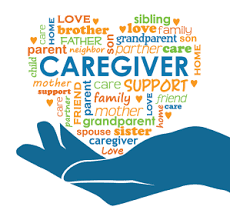Caregiver, are you suffering from “Fudge”? It’s a rhetorical question. Caregiving is one of the most demanding jobs there is and most don’t even know that they are suffering from “Fudge”. Describe any caregiver that you have seen and no doubt you will know that they were suffering from some or all of the “Fudge” symptoms. Every caregiver suffers from “Fudge” to varying degrees given the nature of the support provided and the duration of caregiving. The degree of “Fudge” suffered will fluctuate based on the care demands and the status of the caregiver at that moment.

What is “Fudge”?
“Fudge” is an acronym for Frustrated, Unsure, Guilty, Depressed, and Exhausted. These are the key symptoms that affect caregivers.
Frustration is the most common sentiment expressed by caregivers. The issues leading to caregiver frustration include the ongoing changes in the needs of the one being cared for. Just when a routine is mastered, things happen, and the status quo is blown away. Providers and vendors who don’t turn up when scheduled and supplies that don’t arrive when expected contribute to pushing the caregiver to the limits.
Unsure; what happens now? When a new symptom is exhibited, an unexpected reaction surfaces or there is an unplanned turn of events, that often results in a caregiver doubting their abilities. They lack confidence and are uncertain as to what actions should be taken. Frequently, this happens late at night, on weekends, or on holidays when support is limited.
Depression is the sadness and despair that accompanies caregiving. It is magnified as the loved one’s condition declines and care needs increase. Caregivers become more sleep deprived, and they may also experience a loss of social support. If the caregiver has a history of depression, then symptoms are magnified.
Guilty feelings surface when a caregiver is stressed by growing caregiving needs. There is a realization that they may no longer be able to provide care, or they are “sandwiched” between caring for others (child, grandchild beyond caring for a spouse) or they need medical interventions.
Exhausted, the caregiver is suffering from physical and or mental tiredness. The caregiver experiences difficulty concentrating and encounters sleep issues. Sadly given all that they are dealing with caregivers tend to disconnect from relationships and support mechanisms. FUDGE is another way to describe caregiver burnout.

Reduce your “Fudge”
Caregiver, are you suffering from “Fudge”? A question that needs to be continually asked. Managing “Fudge” is an active and ongoing process. The caregiver must practice self-care to ensure that they can continue effective caregiving responsibilities. Just as passengers on a flight are reminded that in the event of the loss of cabin pressure and oxygen masks are deployed, one is instructed to place their mask on first before helping others.
Consider what you could realistically delegate; shopping trips, house chores, yard work, or pet care. Remember that friends and neighbors want to help and often do not know what would be of assistance. This is a time to put pride aside and be grateful for the assistance of others. There is no doubt that you have helped others out in a crisis and now let them return the favor by accepting assistance.
What would your self-care wish list include; a few minutes of music, reading, walking, resting, having a massage, or haircut? Consider what will help you “recharge” for your next session of caregiving. Then determine what you need to do so that you can have your “recharge” time. It may mean having someone sit with your loved one to keep them company so that you can take care of yourself.
Preplan, Avoid FUDGE
Preplanning is a strategy to have backup plans and options available when an unanticipated turn of events surfaces. This would include having a list of backup caregivers/home care agencies, a “stash” of supplies/medications, extra food, or other items that could disrupt the caregiving routine. Don’t forget backup drivers and other roles that you depend on. Strong preplanning will help minimize a crisis.
Explore caregiver and senior resources in your community; check out faith-based organizations and diagnosis-specific associations (Alzheimer’s, American Heart Association, Cancer-related organizations…). Remember to discuss specific concerns with your healthcare provider for additional referrals, resources, and support. Minimize your suffering from FUDGE by preplanning.
Support a caregiver
Determine what you can do to ease the role of caregiving. It can be as simple as sending cards weekly, calling, and letting the caregiver know that someone thinks of them. The most helpful and meaningful things caregivers wish for are; meals, grocery deliveries, and attending to chores where someone volunteers and does not wait to be asked. Not everyone feels comfortable being around the loved one when they are ill or declining, yet caregivers need support. Consider stating to a caregiver “I am going to the supermarket, give me your list”, I will mow your lawn today/take out and pick up your trash cans”, and “I will fix your porch light today.” Leave a surprise you know the caregiver or loved one would appreciate. Be creative in lessening the burden and helping a caregiver smile. Remember that caregivers are suffering from FUDGE and need your assistance.
Caregiving is a work of the heart!

Resources
Military Veteran Caregiver Network


